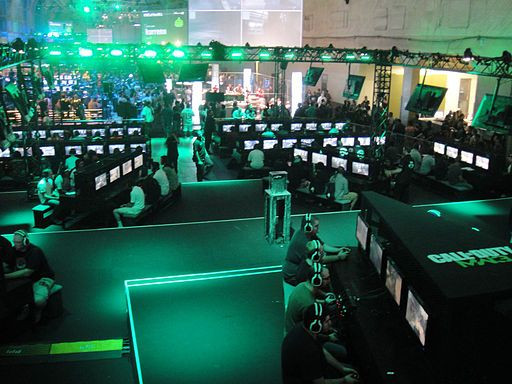Video Game Violence More Appealing to Frustrated Thieves and Cheaters

Video game violence is more attractive to frustrated people who are kept from stealing or cheating, says a new study.
The research suggests that people who are tempted to commit taboo behaviors like stealing or cheating, then prevented from doing so, find violent video games much more attractive as an outlet for their frustration and aggression.
The study, led by Brad Bushman of Ohio State University, was published last month in the journal Psychological Science.
Video game violence is so widespread in American society as to be unremarkable at this point. The usual concerns about video games promoting violent behavior in disturbed children and adolescents flare up every time an act of mass violence occurs in the United States, but no serious efforts have yet thwarted the ubiquity of violent best-selling games like Call of Duty and Assassins' Creed in children's bedrooms.
Bushman and his team wanted to understand why people are so attracted to video game violence.
In a previous study, his team found that people who believe that video games are useful for emotional release are more attracted to violent video games when they get angry. This seems like an obvious causality - if you believe that punching a pillow is cathartic, you'll be more likely to punch a pillow when you get angry.
In the new study, the Ohio State team expanded on that research to investigate whether attraction to video game violence might be correlated to the desire to commit antisocial behavior.
Forbidden behaviors are often tempting, and the researchers decided to explore the effect that thwarting people's temptations to commit acts like cheating and stealing had on their desire to play violent video games.
In the first experiment, the researchers gave 120 male college students a difficult multiple choice history exam and offered a tasty food reward if they did well. Some of them received an already completed exam with a score of 100% marked at the top, but no name on it, so the students would be tempted to claim it was theirs.
The experimenter then interrupted the participants to say "Sorry, I gave you the wrong copy of the exam," and offered a new envelope with a blank exam, thus frustrating their opportunity to cheat. For another group of students in the same room, the second envelope contained another exam with a 100% score and they still had the chance to cheat.
After the students finished their exams, they were invited to complete another study about video games while their tests were scored. This being a study of college-aged males, all said yes. They read descriptions of eight made-up video games - four violent, four nonviolent - and rated how much they wanted to play each one on a scale of 1 to 10.
The results showed that students given the completed exams answered far more of the difficult questions correctly, which suggests that they cheated, and that the students who were tempted to cheat but not allowed to were much more likely to choose video game violence.
In the second experiment, 141 male college students were given the chance to steal quarters over the course of a task. One group of those students was tempted to steal the coins and then had their chance taken away. As in the first experiment, the frustrated students were more attracted to the violent video games in the following questionnaire.
"Violent games offer a chance to engage in aggressive behavior in the virtual world, which is attractive when one experiences frustration," said Bushman in a statement.
It's useful to note that while frustrated people may be more likely to choose violent video games, the research does not say that people who like video game violence are necessarily frustrated thieves or cheaters.
The study sheds some light on why people are attracted to video game violence, but it's unclear how generalizable the results are.
Women, a growing demographic target for violent video games, were not included in the study, but the researchers predict similar results for female research participants who are tempted to commit antisocial acts.
Bushman worries that video game violence not only absorbs frustration and aggression, but can also exacerbate those feelings in the long run. People might turn to violent video games to manage their frustrations, but the increased exposure to virtual violence might end up enhancing their negative feelings.
Of course, millions of people play violent video games regularly and don't feel any increase in violent tendencies.
This study looks at the relationship between being frustrated and wanting to play violent video games, but says nothing about the influence of video game violence on their emotions.
What do you think, gamers - do you feel more attracted to video game violence when you're frustrated?



























